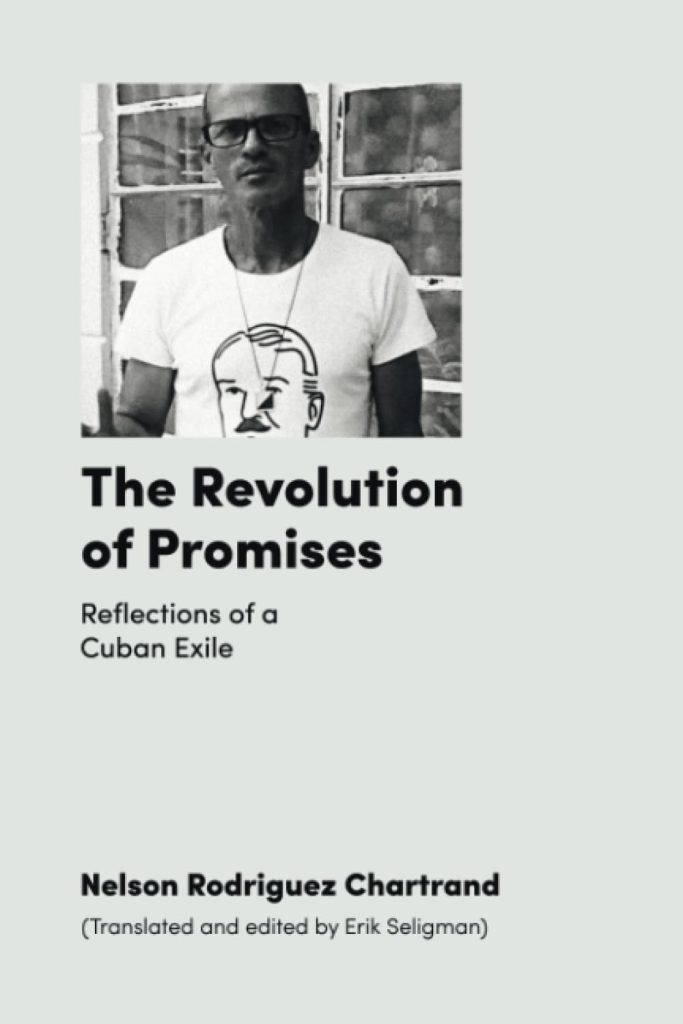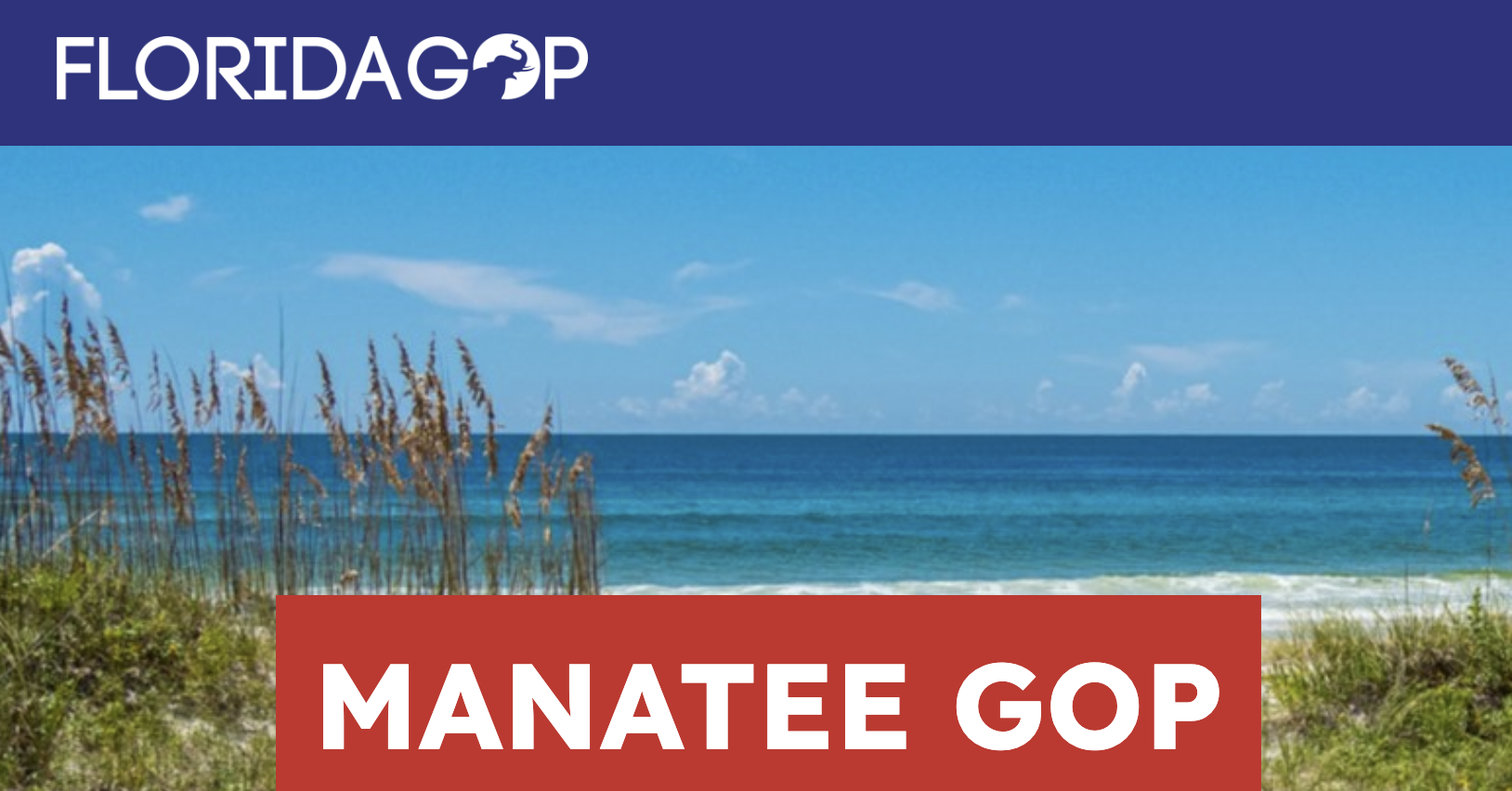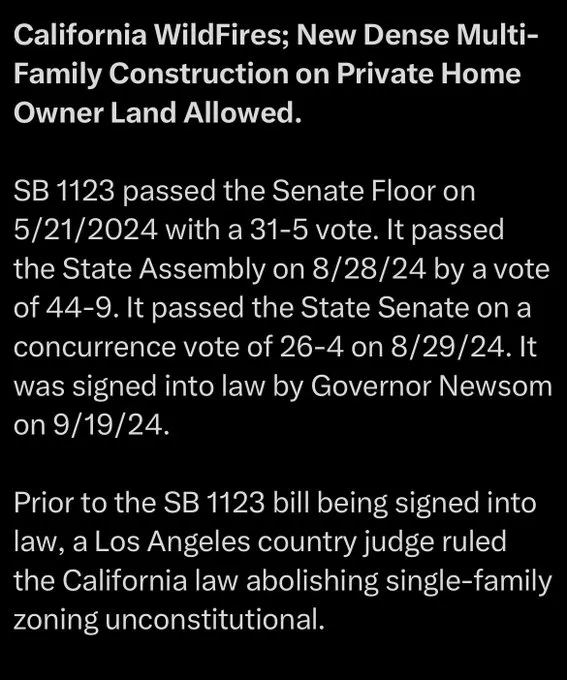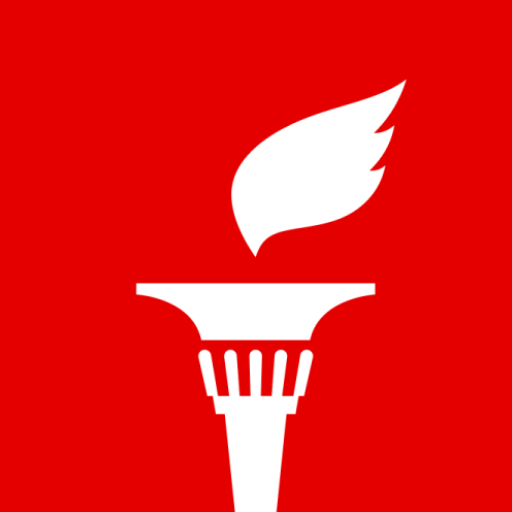
Please Follow us on Gab, Minds, Telegram, Rumble, Truth Social, Gettr, Twitter
Doral, Florida - Cuban exile Nelson Rodriguez Chartrand has written his memoirs, The Revolution of Promises: Reflections of a Cuban Exile, translated and edited by Erik Seligman, and published this summer by Archway Publishing, Bloomington, Indiana, with support from the Liberty Sentinels Fund, Northern Virginia: https://www.amazon.com/Revolution-Promises-Reflections-Cuban-Exile/dp/166574815X/ref=sr_1_1?crid=1J38994R9K2DK&keywords=nelson+rodriguez+chartrand&qid=1693398795&s=books&sprefix=nelson+rodriguez+chartrand%2Cstripbooks%2C98&sr=1-1. Nelson exposes the network of lies at the center of communism, which he experienced in Cuba, but those communist lies exist everywhere in the world. This extraordinary little book should be read by all patriots, for evidence to argue your case, but more importantly, it should be read by all those who think that the Cuban revolution is in any way a model for America.
In his preface, Nelson announces his aim to expose: “the pernicious myth of the philanthropic nature, welfare and social justice” of the communist revolution in Cuba. Indeed, communists are gangsters disguised as philosophers and philanthropists. As Nelson observes, the global leftist rhetoric praising the Cuban revolution: “hides a tyrannical regime governed by despots of the lowest ilk, who have led the Cuban people to an alarming level of material and spiritual misery.”
Nelson acknowledges that Cuba is the first socialist territory in the Americas, and this achievement “was established on the basis of endless false promises.” The Cuban revolution’s most deadly weapon is the lie. (1) First, the lie of democracy. Before the triumph of the revolution in 1959, its leader Fidel Castro promised that the revolutionary government would hold “general and multi-party democratic elections.” Castro also declared that he was not a communist. The German Democratic Republic was not alone in this lie. (2) Second, the lie of freedom. During 1959 Castro proclaimed that the revolution would establish a “free country,” with “no censorship” and with freedom of assembly. He also said that he was not interested in power and did not covet it. (3) Third, the lie of prosperity. In those early days of the revolution, Castro promised economic prosperity and a high standard of living. Those promises were not only empty rhetoric, but also became what Nelson calls: “a systematic practice of the rulers to achieve perpetual power.” It was a revolution of false promises, and the regime continues to lie in order to maintain its power.
Despite all its promises, by 1961 (just before the Bay of Pigs crisis) the Cuban regime proclaimed that national leadership resided in the Communist party, and that: “Cuba is a socialist state.” The party holds sovereign power, above the state and its institutions (including the judiciary), and of course above the people. Castro and his revolutionaries took absolute power after lying about their intention to establish freedom, prosperity and human dignity.
Revolutionary Freedom and Total Control
It is worth remembering that Jeanne Kirkpatrick, United States ambassador to the United Nations during the Reagan administration, drew a distinction between authoritarian and totalitarian regimes. The Batista government before the Cuban revolution was a military dictatorship riddled with corruption. It suppressed freedom, censored dissidents, and permitted crime and terror, but it did not invade the private lives of its citizens or seek to create a new man. That is an authoritarian regime, but in a totalitarian regime, the state wants total control.
As Mussolini (a national socialist) said in Italian, and Castro (an international socialist) said in Spanish: “Everything inside the state; nothing outside the state; nothing against the state.” In a totalitarian regime, there is no private sector. In Cuba, as Nelson points out: “All the fundamental means of production are owned by the elite rulers….They own everything.” As the World Economic Forum puts it: “You will own nothing and be happy.”
They also own all the media sources, so that there is no freedom of the press, and independent journalism is not tolerated. As Che Guevara said: “We must put an end to all newspapers. A revolution is not achieved with freedom of the press.” There is also no freedom of assembly or association, and public demonstrations against the regime are not allowed. Freedom of movement is also not permitted, and citizens are subject to what Nelson describes as constant “repression, indoctrination and manipulation of external reality.” As a result, he concludes that: “In effect, the island was converted into a giant maximum security prison.”
Nelson confirms that the object of the Cuban revolution is to create a new man: “completely devoted to blindly serving the interests of the revolution, even above family feelings.” As Che Guevara urged: “Young people must learn to think and act like a mass. It is criminal to think as individuals.” In so doing, the revolution has built a cult of personality around Castro and Guevara similar to that built around Stalin, Hitler and Mao. Meanwhile, leftists around the world continue to spread lies about the achievements of the Cuban revolution in: (1) education; (2) health care; and (3) nutrition.
Education
UNESCO-the United Nations Educational, Scientific and Cultural Organization, has asserted that: “Cuba’s educational system has distinguished itself by its high quality.” In 1961 the Cuban regime launched an “alphabetization” campaign for national literacy, but to read what? Exclusively communist propaganda and indoctrination! As Nelson observes: “all knowledge and individual genius had to be turned entirely towards the objectives of the revolution.”
Schooling is also used to separate students from their families, especially via schools in the countryside, away from their family homes. A totalitarian regime wants pliable citizens, but families can act as bastions of freedom. Communism aims to destroy the family, erase parental rights in education, and separate its citizens from all family attachments. Accordingly, Cuban education is dedicated to indoctrination and separating students from their families.
‘NO AD’ subscription for CDM! Sign up here and support real investigative journalism and help save the republic!‘
Health Care
The Cuban regime has made great investments in health care (in part with confiscated businesses and properties), and has also launched vaccination campaigns that have eradicated many diseases. The WHO-World Health Organization, another affiliate of the United Nations, has certified the excellence of health care in Cuba. Nevertheless, Cuban health care cannot be ranked as excellent given its operating conditions: (1) First, the lack of medical supplies and pharmaceuticals in all facilities. (2) Second, the lack of cleanliness and hygiene in those facilities. (3) Third, the disrepair of those facilities, and the lack of personal security there. In the best cases, as Nelson observes, patients have to wait up to six months for “a bone scan, an axial tomography, or an MRI.” (4) Fourth, there is also a shortage of qualified doctors and other medical professionals, in part because the government rents them out on the international market in return for hard currency, which it barely shares with those professionals. (5) Fifth, many patients fall victim to “wrong dignoses and medical negligence.” There is no remedy or accountability for medical malpractice to the affected patient and his family against the state health care monopoly. (6) Sixth, there are “often non-existent ambulance services,” and patients have to be transferred “in horse-drawn carts, even seriously ill patients.”
Nelson points out that a first-rate health care system is reserved: “only for the ruling elite, their families, and foreigners willing to pay for them.” This is another example of the false philanthropy promoted globally by communist propaganda.
Nutrition
The FAO-Food and Agriculture Organization of the United Nations has “recognized that hunger is not a problem in Cuba.” The reality is that food shortages have plagued Cuba since the start of the revolution, because of its agrarian reform to expropriate farms from their owners, and force them into state-sponsored cooperatives. Collective ownership under state control did not work in the Soviet Union, and it does not work in Cuba. In fact, eating beef and even fishing are strictly regulated by he regime. Since 1962 a monthly rationing system for food, with ration cards, has been in effect. However, it does not provide enough food to eat for the entire month, so ordinary people have to resort to stealing and the informal economy to obtain a nutritional subsistence. Hunger is a constant companion of ordinary Cubans.
Subsistence living is yet another means for the regime to terrorize and control its people. As Nelson remembers hearing: “Where hunger comes, honesty goes,” and he also notes that: “Cubans live to a large extent on what they can steal.”
Embargo
Another lie spread by global leftists is that the shortcomings of the Cuban revolution are attributable to the policies of the United States, especially the embargo. An embargo on trade with Cuba was imposed by the United States government around 1960, in response to the expropriation by the Cuban government of he businesses and properties of both Cuban and United States citizens. The policy of the Cuban communist government, as Nelson observes, was: “ending all vestiges of private property and economic freedom on the island, a situation that has lasted to this day.”
The United States embargo, however, is not a blockade and does not prevent Cuba from trading with other countries, which constitute around 95% of the world’s population. In addition, as Nelson reports, the embargo includes exemptions which allow the United States to serve as: “the main supplier of agricultural products to Cuba.”
During the Cold War, Cuba received substantial subsidies from the Soviet bloc, until its dissolution in 1991. Then starting in 1999 with the communist revolution led by Hugo Chavez, Venezuela has provided such subsidies. Other countries that have provided subsidies include Spain, France and China. The 1990’s were a “special period” of hunger and malnutrition in Cuba. In any event, the failure of the Cuban economic system cannot be blamed on United States policy.
Regime Change and Tourism
Nelson doesn’t think that anything is going to happen to the Cuban regime in the foreseeable future, although he agrees that exposure to the Internet and the death of the original leaders of the revolution work to undermine the legitimacy of the regime. The protests of July 11, 2021 were grassroots responses from ordinary people, but they have already been totally repressed. The ruling elite cannot afford to loosen their grip on power lest they be held accountable for their lies and tyranny.
Cuba is a small island in a sea of world empires, and like the island of Melos during the Peloponnesian war, its future depends on the actions of larger powers. See: https://www.nku.edu/~weirk/ir/melian.html. During 1961-62, the Kennedy administration abandoned the Monroe doctrine of 1823, which opposed the intervention of Eurasian powers in the Americas. In those days the intervention came from Soviet Russia, and today it also comes from Communist China and even from Jihadist Iran. Regime change in Cuba will require that America re-assert its supremacy in this hemisphere, and make America great again.
In response to a question of whether he would recommend that American tourists visit Cuba, he replied: “All you would be doing is making the elites there more wealthy. The economy and everything you do in Cuba is controlled by them. What trickles down to the people is very little.” American tourists in Cuba are like visitors to a prison colony, clutching their passports which guarantee their departure, and staring at all the unfortunate prisoners who cannot join them in leaving. Now that we have the evidence presented in this book, however, there is no need to visit in order to see for yourself.
Politics and Culture
Nelson was born into a blue-collar working-class family in Havana during 1965. His family raised him to be a compliant citizen in that totalitarian tyranny, and he was a loyal indoctrinated communist. However, as Andrew Breitbart reminded us, politics is downstream from culture. Thus, Nelson’s first collision with communist politics, when he was a teenager in the 1980’s, came as a result of his affection for hard rock music and its associated lifestyle. Vaclav Havel, leader of the movement that overthrew the communist regime of Czechoslovakia in 1989, also credited dissident rock bands with sustaining the underground resistance during the Cold War. Today Cuban dissident music is expressed in the rap song “Patria y Vida:” https://www.youtube.com/watch?v=pP9Bto5lOEQ.
As a result, he was jailed by the regime almost every weekend. He admits that at first he was “reluctant to admit that the Cuban revolution was a farce,” but by 1992 when he was 27 years old, he began to participate in demonstrations and associate with dissidents. Nevertheless, he did so discreetly so that he could complete his law studies.
Nelson attended public schools, except that during the second year of his secondary schooling, he was expelled due to what he describes as his: “addiction to rock music and all that it meant.” Thereafter, he continued his studies in irregular schools for workers, and graduated in law through independent study, loosely affiliated with the university, in 1996 at 31 years old. He did well to find a job as a legal advisor in a state-sponsored export enterprise, where he worked on contracts and arbitration. Thereafter, he started more open demonstrations, and in 2008 he was imprisoned for two years.
For some reason that he does not explain, Nelson came to faith in God and His son Jesus Christ. He does not list the Bible as one of the books that have inspired him. Instead, in 2014 a fellow Cuban dissident received a library from America with books by the likes of John Locke, David Hume, Adam Smith, Frederic Bastiat, Alexis de Tocqueville, Ludwig von Mises, Friedrich von Hayek and Milton Friedman. Nelson found in those books: “a philosophy that is very close to the very essence of human nature,” an alternative to “collectivist thought that makes life hypocritical and unhappy.”
After absorbing all this book learning, Nelson became a lecturer around the country in libertarian philosophy, which he describes as focused on: “self-ownership and freedom as inseparable complements to human life.” As a result, he was repeatedly arrested, and he took the opportunity for exile in Brazil during 2018. There he says that he found himself: “living with a peace of mind that I never had before.”
Live Not By Lies
Alexander Solzhenitsyn and Pope John Paul II both experienced communism in Russia and Poland, respectively, and rose to become mighty warriors against the Soviet Union, contributing to its defeat in the Cold War. They both counseled that we should not live by the lies that communist regimes tell us. Solzhenitsyn observed that communist rulers lie to their people, the people know they are lying, the rulers know that the people know they are lying, but the rulers continue their lying. The challenge for free people everywhere is to not live by the lies their rulers tell them.
Larry Reed, president emeritus of the Foundation for Economic Education, Atlanta, reminds us that freedom gives meaning to our lives, but freedom is also a burden. When you live in slavery, and someone asks you what you have done with your life, then you have the excuse that slavery kept you down. But when you live in freedom, then you have no such excuse. In order to make something of your life, you need the courage to confront the situation, the work ethic to do something about it, and the self-discipline to defer gratification.
Nelson has the courage, character and conviction to make something of his life in the relative freedom of Brazil, although there freedom is threatened by the socialist machinations of their administrative state. It is unusual that he did not seek exile in America, but he went where opportunity took him. See: https://miamiindependent.com/cuban-privilege-in-america-is-real/. The libertarian movement is not large in Brazil, but Nelson found his niche there. Paulo Guedes, finance minister in the Bolsonaro administration and a Chicago Boy, told an interviewer from the UChicago alumni magazine a few years ago that there were a few libertarians in Brazil, but that they could all fit into his Volkswagen micro bus.
Nelson has a lot to teach us in America, and this extraordinary little book is very much worth reading by patriots, in order to pile up ammunition for our arguments against leftists. Read this book so that you do not have to visit and see for yourself. However, it is even more important that this book be read by all those who are enchanted with the alleged achievements of the Cuban revolution. Give it to your woke progressive acquaintances and ask for any rebuttal. No one where I am living thinks that Cuba has a good health care system. This book should be air-dropped in Vermont and all other blue precincts. People vote with their feet, and very few migrants are trying to enter Cuba.
Unfortunately, we Americans are starting to learn for ourselves first-hand that, as President Reagan warned, communism does indeed constitute an evil empire, an empire of lies. Let’s read this book and straighten out our course fast!




















